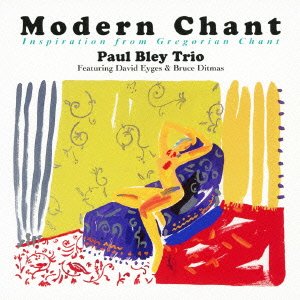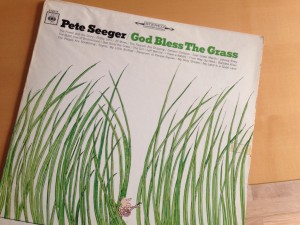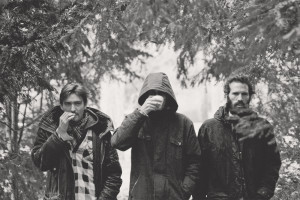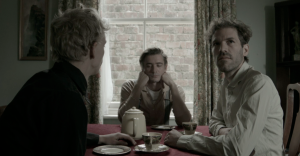Archives: Januar 2014
2014 31 Jan.
Die Klanghorizonte am 1. Februar
Michael Engelbrecht | Filed under: Blog | RSS 2.0 | TB | 5 Comments
2014 30 Jan.
Gregor öffnet seinen Plattenschrank (63)
Gregor Mundt | Filed under: Blog | RSS 2.0 | TB | Comments off
Paul Bley Teil 3
War man im März 1993 noch mit den Japanern in New York zwecks Aufnahmen zusammen, zieht es Bley im April schon wieder nach Kopenhagen, wo er sich mit Jay Anderson und Adam Nussbaum trifft und für SteepleChase Paul Bley – If We May aufnimmt. Im August 1993 führen die Wege Bley wieder in seine Heimat, es gibt viel zu tun. Am 29.August wird eine Solo-Piano-Platte eingespielt, Sweet Time (ausschließlich Eigenkompositionen), am 30.August eine Duo-Platte mit Jane Bunnett (Sax / Flute) aufgenommen – eine Platte die Kompositionen von Bley, Bunnett und eine (Music Matador) von Peacock enthält – und schließlich begeben sich am 31.August drei Musiker ins Studio, neben Bley, Herbie Spanier und Geordie McDonald und nehmen Know Time auf. Im September kommt es dann in New York noch zur Produktion einer ziemlich ungewöhnlichen Platte, Bley spielt Solo auf dem Flügel, aber auch einmal mehr auf dem Synthesizer und das nicht etwa nacheinander, nein zugleich! So heißt denn auch die CD Synth-Thesis. 1994 besucht Paul Bley wieder das Mailländer Studio, mit von der Partie Furio Di Catsri (bass) und Tony Oxley (drums) es entsteht die CD Chaos.

Im Jahr 1994 ist aber auch New York wieder als Aufnahmeort für Paul Bley angesagt: am 18.Juni wagt man wieder eine Trioaufnahme, dieses Mal mit David Eyges (electric cello) und Bruce Ditmas (drums) Paul Bley Trio – Modern Chant – Inspiration From Gregorian Chant. Eben dieses Trio triff sich am 17.September nochmals in New York und nimmt The Paul Bley Trio – Emerals Blues – Inspiration From Gregorian Chant auf. Zwischendurch geht es allerdings nochmal nach Montreal, wo der Meister am 4.Juli mit Sonny Greenwich (guitar) eine Duoplatte Paul Bley/Sonny Greenwich – Outside In einspielt. Das Aufnahme-Jahr 1994 endet im Oktober in Kopenhagen mit einer Trioaufnahme, dabei sind Jay Anderson und Victor Lewis und schließlich mit einer Einspielung im Quartett, auf der sich Rich Perry (sax) dem Trio hinzugesellt, Titel der CDs: Reality Check und Speechless.

Man glaubt es kaum, vor mir liegen 26 Schallplatten und CDs, allesamt aufgenommen zwischen 1990 und 1994, und die meisten davon sind von wirklich hoher Qualität. Aber es sollte bald wieder stiller werden um Paul Bley: Erst im April 1996 kommt es wieder zu einem Studiobesuch: Es tritt wieder Manfred Eicher auf den Plan und verführt Paul Bley nach Sankt Gerold (Österreich) zu kommen, aber das ist eine andere Geschichte.
„One of the most extraordinary – and most hidden – spaces in a city of rare and remarkable treasures is the suite of rooms in Florence’s La Specola that houses the natural history museum’s collection of baroque anatomical waxes. These halls are almost always empty of visitors, which renders first sight of their exhibits even more eerie: to walk into them for the first time is like entering a macabre fairytale. In glass cases lie full-sized female figures in wax, limbs delicately positioned to replicate feminine life: they wear pearl necklaces, they have real, waist-length hair, their skin gleams – and their bodies have been laid shockingly open to demonstrate the red and yellow organs of digestion and reproduction.“
So starts Christobel Kent’s review of Rupert Thomson’s latest novel, SECRECY, that will be our „thriller of the month“ in March. The German translation, „Faustinas Vollendung“ will be published on Feb. 17th.
2014 30 Jan.
The Faucets are drippin‘
Henning Bolte | Filed under: Blog | RSS 2.0 | TB | Tags: Malvina Reynolds, Pete Seeger | 1 Comment
Langzeitbegleiter The Weavers, Pete Seeger. Gehört zu meinen ersten unschuldigen Ankäufen und ging immer mit.

Komischerweise faszinierte mich damals vor allem der Song The Faucets Are Drippin‘ von Malvina Reynolds.
The Faucets Are Dripping
The faucets are dripping in old New York City,
The faucets are dripping and oh, what a pity,
The reservoir’s drying because it’s supplying
The faucets that drip in New York.
You can’t ask the landlord to put in a washer,
He’d rather you move than to put in a washer,
The faucets are dripping, they sound in my ears,
The tap in the bathroom’s been running for years.
There’s a wild streak of green in the sink in the kitchen,
It comes from the rill trickling out of the plumbing,
The streams from the mountains, the pools from the lea,
All run from my faucet and down to the sea.
You can’t ask the landlord to put in a washer,
You can’t ask the landlord to mend the old stairs,
He takes in the rents and he lives in Miami,
Where faucets don’t drip and there’s sun everywheres.
The faucets are dripping, the landlord’s content.
With every new tenant he raises the rent,
The buildings can crumble, the tenants can cry,
There’s a shortage of housing, you’ll live there or die.
They’re building some buildings and fine city centers,
It’s sure working hard on the low-income renters,
They’re jammed into rooms with the rat and the fly
Where the faucets all drip and the floor’s never dry.
words and music by Malvina Reynolds; copyright 1959 Schroder Music Company

In letzter Zeit (vorallem in fremder Umgebung, z.B. nicht in Zuerich) oft die ploetzliche Erinnerung an Menschen, unverlangt. Fakten; sie fallen mir ohne Anlass ein. Was ich in meinem Leben alles nicht wahrgenommen habe. Wie brutal ich in bestimmten Situationen war, wie naiv und unbewusst, ebenso wahnwitzig in der Selbstgerechtigkeit wie in der Ungerechtigkeit gegen mich selbst, unwissend ohne auch nur eine Ahnung davon, wie unwissend ich lebte, wie blind, wie uebermuetig, wie vorsichtig, wie bloed, wie begabt. Jetzt Memoiren schreiben (nicht zur Veroeffentlichung) waere das Abenteuer, das noch moeglich ist; es wuerde mich packen und umdrehen, glaube ich. Ich haette ein Leben hinter mir, eines, das mich noch einmal interessiert, weil ich es nicht kenne. Es hiesse vorerst sich selbst verlieren. Wo die Gegenwart nicht mehr viel ausloest an Gefuehl, ploetzlich kommt es aus dem Vergangenen-Vergessenen: Gefuehl, das sich ausdruecken moechte. So vielerlei ist gelebt worden und verschuettet, indem man weiterlebte. Ich muesste jetzt jeden Tag um sechs Uhr aufstehen, es eilt, es ist aufregend. Ich habe mir mein Leben verschwiegen. Es kommen auch Kronen zum Vorschein, die man nie getragen hat, unter viel Misere durch Dummheit und Feigheit und Eitelkeit auch Kronen, jetzt nicht mehr auf den Kopf zu setzen.
Zuletzt sah ich David Crosby in einem Swimmingpool, im Laurel Canyon, das war so 1971 herum, und ein paar attraktive Frauen schwammen im Pool, und er wirkte bekifft, die Augen waren glasig, es war nur eine kurze Szene, aber vielsagend, in einem Film, der die Geschichte erzählte, wie Kalifornien in kurzer Zeit mit seiner gesammelten Songwriter-Zunft Musikgeschichte schrieb, und heute hörte ich sein neues Album CROZ, und es ist natürlich altmodisch, und Fans werden sagen, zeitlos, aber beim ersten Hören gefiel mir so manche Atmosphäre, nichts Berauschendes, Liedertagewerk, with a beating heart, und Wynton Marsalis (der bornierte Jazzbulle) und Mark Knopfler brauchte ich in diesem Leben auch nicht mehr, nicht mal als Gastmusiker, aber dann war da dieses eine bewegende Lied, MORNING FALLING heisst es, oder FALLING MORNING. Und ich zähle dieses Geisterlied einfach mal zu seinen besten Songs überhaupt. Diese Platte hat, im besten Sinne, „ihre Momente“. Ganz gleich, wie gediegen die Studioproduktion insgesamt ist, ich höre dieser Stimme gerne zu. Und manche Echos von 1971 wollen nicht verklingen. Und das hat durchaus was Gutes.
2014 29 Jan.
Hinaus in die Nacht
Henning Bolte | Filed under: Blog | RSS 2.0 | TB | Tags: Do Not Go Gentle Into That Good Night, Dylan Thomas, Eggs Laid By Tigers, Jonas Westergaard, Martin Dahl, Peter Bruun, Simon Toldam, Under The Mile Off Moon | 8 Comments
Eggs Laid By Tigers vorigen Sommer in Kopenhagen: ebenso verblüffende Metamorphose wie gelungener musikalischer Rollenwechsel.

Wo sonst avancierter Jazz klingt, stimmen drei Musiker auf einmal in close harmony wunderbare, ergreifende Songs zur Gitarre an – so, als sei Levon Helm auferstanden. Essentiell, mit tiefem musikalischen Gefühl. Der Leadsänger entpuppt sich als der reichlich bekannte Wahlberliner Jazzbassist Jonas Westergaard. Und dann auf der spanischen Gitarre der gleichfalls bekannte dänische Jazzschlagzeuger Peter Bruun.
Dazu Rockgitarrist Martin Dahl und – hauptsächlich an einer alten Philips Heimorgel – Jazzpianist Simon Toldam. Es sind straight songs, kompakt und schillernd in den Moods. Und die Texte, die sie singen?
Lie still, sleep becalmed, sufferer with the wound
In the throat, burning and turning. All night afloat
On the silent sea we have heard the sound
That came from the wound wrapped in the salt sheet.
Under the mile off moon we trembled listening
To the sea sound flowing like blood from the loud wound
And when the salt sheet broke in a storm of singing
The voices of all the drowned swam on the wind.
weiter
Es sind Zeilen aus dem Gedicht Lie Still, Sleep Becalmed von Dylan Marlais Thomas (1914-1953). Dessen Deliriker-Image kennen Leute mehr als seine Gedichte, über die ihm selbst entfiel, sie seien von Tigern gelegte Eier. Thomas verliert sich bis heute einfach nicht im Vergessen – auch dank des jungen Mannes aus Duluth in Minnesota, der sich einen Teil von dessen Namen entlieh.

Gesang und Songform machen Sinn, liegen sie doch nahe an den Qualitäten von Thomas’ eigenem Vortrag, einem mündlichen Vortrag, der seinen Ruhm wesentlich mitbegründete. Er zog schliesslich deklamierend herum, bevor ihm die Lungen im Chelsea Hotel in New York versagten. Gesang und Songform verleihen dem Werk von Thomas im 100. Geburtsjahr eine grossartige zusätzliche Dimension.

Das erste Album der Dänen Under The Mile Off Moon ist gerade international auf CD erschienen (die Vinyl-Fassung war auf Manafonistas schon eher angezeigt worden), ein zweites Album ist gerade entstanden. Und hier im Vorlauf ein besonderes Stück Tafelmusik in der Küche von Thomas’ Geburtshaus im walesischen Swansea. Angestimmt von Jonas Westergaard, Martin Dahl und Simon Toldam: Do Not Go Gentle Into That Good Night.

Erst war da der Text
Do Not Go Gentle Into That Good Night
Do not go gentle into that good night,
Old age should burn and rave at close of day;
Rage, rage against the dying of the light.
Though wise men at their end know dark is right,
Because their words had forked no lightning they
Do not go gentle into that good night.
Good men, the last wave by, crying how bright
Their frail deeds might have danced in a green bay,
Rage, rage against the dying of the light.
Wild men who caught and sang the sun in flight,
And learn, too late, they grieved it on its way,
Do not go gentle into that good night.
Grave men, near death, who see with blinding sight
Blind eyes could blaze like meteors and be gay,
Rage, rage against the dying of the light.
And you, my father, there on that sad height,
Curse, bless, me now with your fierce tears, I pray.
Do not go gentle into that good night.
Rage, rage against the dying of the light.
Dann kam der Gesang
VIDEO

Die Eggs-Sänger-Musiker sind auf Fahrt und machen auch hierzulande in der ersten Februarhälfte halt (Berlin, Hamburg, Köln, Offenbach, Wuppertal).

2014 28 Jan.
The Take Off And Landing Of Everything
Manafonistas | Filed under: Blog | RSS 2.0 | TB | Comments off
Recorded at Blueprint Studios in Salford with additional sessions at Peter Gabriel’s Real World Studios in Wiltshire, Elbow’s new album is produced by Craig Potter and released by Fiction Records on March 10. If the other songs of it come close to the brilliant things you can hear in this official video of „Fly Boy Blue / Lunette“, then it’ll be a great, great work! If you’re looking for new anthems, well, this might not be an obvious choice. The „anthemic“ element may be limited to the guitar solo of the first song which, at first listen, sounds like a slightly big gesture, but, at second listen, it has found its place in this laid-back performance of Guy Garvey. Both tracks are working with understated emotion, and that definitely serves the songs. (me)
2014 28 Jan.
Joe and Michael have fun with Bill (the story of the world’s first „review remix“)
Manafonistas | Filed under: Blog | RSS 2.0 | TB | Comments off
I was too lazy to write a whole review of Callahan’s dub album by myself. So I was looking for a rather sceptical, but intelligent review which I then tried to reframe into a very positive one, taking the best bits of Joe Sweeney‘ writing, skipping the negative thngs, adding my thoughts, make it organic, like a living thing. Though it has already been posted, this remix will be our cd review of next month, and of course, the original text will be added. Joe discovered my text, and here is our email-talk.
Joe: Nicely done
Michael: Thanks! And you have good humour, obviously, and want no money.
Joe: I think the „review remix“ is a clever idea. Plus your points about the Callahan album were well said!
Michael: … then let’s start this new sub-genre. In a world of remix-culture the „review remix“ is not so far-fetched. And, by the way, where can I find your reviews apart from the site I found this one? Just curious cause I liked your writing style …
Joe: Thanks! That was my first review for Slant, I’d been blogging up till then here:
2014 27 Jan.
One of the most moving campfire songs ever (with real campfire)
Manafonistas | Filed under: Blog | RSS 2.0 | TB | 3 Comments
„… I’m like a singer on the stage
With the golden lights
and liquid rage
Down from the mountains
to the sea
Cool running love
keeps cleansing me …“
I always loved this „ambient song“, la audio verite – the singer seems to be on the verge of falling apart, the words (nearly part of the air that surrounds them) seem to be in danger of getting burned or at least swallowed by the smoke moments after they left his mouth, it’s a seductive kind of loneliness (if there is such a thing). He added a few notes on a vibraphone, as unreal as his ghost organ that makes a short appearance in the middle of the song. Recorded solo and acoustic on a two-track cassette in front of a crackling campfire in his garden, Young enthused about WILL TO LOVE to the writer Bill Flanagan in 1990, „I was all alone in my house and I was high on a bunch of things. I was really out there and I wrote the whole thing and put it together. None of the verses are exactly the same length. They’re all a little different. I never sung it except for that one time.“ This isn’t strictly true. Young had attempted to rehearse the song for the Long May You Run album, but complained that he kept „forgetting what I was doing, losing it totally and getting all pissed off because it didn’t sound right.“ But, in that night at the campfire, everything was right, even the oblique lyrics, even the loneliness. (m.e. a. o.)

